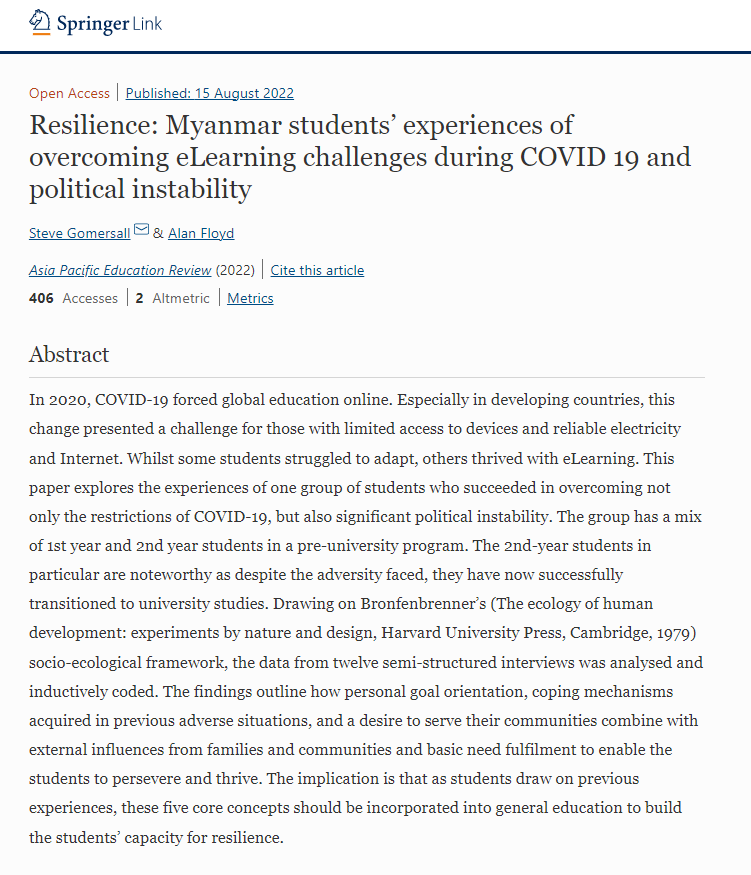A co-authored research article, titled ‘Resilience: Myanmar students’ experiences of overcoming eLearning challenges during COVID 19 and political instability’, by Steve Gomersall (an EdD student at the University of Reading’s Institute of Education) and Professor Alan Floyd (Professor of Education, University of Reading) has recently been published in Asia Pacific Education Review.
Steve commented that: “Like many educators in 2020 – 2021, I was forced to move teaching online. However, living in Myanmar, teaching was complicated by the challenging national situation. I noticed that whilst some students suffered academically, a majority seemed to thrive. And so the question this paper sought to explore was what characteristics enabled a successful transition?”

Grounded within Bronfenbrenner’s work on resilience, Steve’s study interviewed 12 students in a pre-university training programme in Myanmar and examined their responses through iterative coding.
All of the students spoke of the impact their goals had upon their perseverance, with some using goals in a positive way to encourage them to continue, and others recognising the lack of opportunities they would have if they failed to reach their goals. In addition, the participants also mentioned the importance of support from significant others such as teachers, peers, family, and community members. Finally, the students discussed the necessity of basic needs such as Internet connectivity and safety being met, and the challenges in meeting these in the context of Myanmar.
All of the factors revealed offer insights for teachers seeking to build resilience in students prior to adversity striking. Moreover, during the interviews, the participants articulated many perceived benefits of online learning. Some, such as the flexibility, and choice and control, were also seen in Professor Floyd’s work in online learning with colleagues at the Open University. With the majority of the participants now at university, a follow-up study is underway to see how their opinions have changed and compare their experiences with previous cohorts who didn’t experience online or blended learning.


